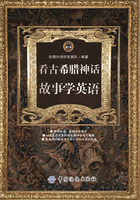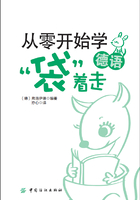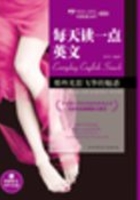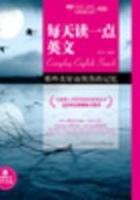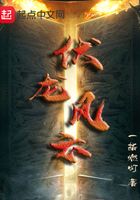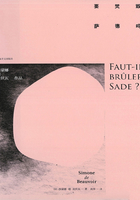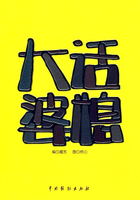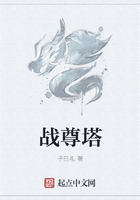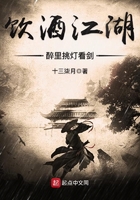I turned around and entered the tent. The inside was gloomy and dark, and there was nobody there. The quilt on the end had been folded up very neatly. The pressure cooker on the stove fire chugged out heat pleasantly. I smelled food. Pork the size of a fan was hanging on the support stand. Someone had used a knife to carve out several slices of the bottom of it, and had left behind a neat cavity, like the crenellations on the Great Wall. I got closer to see more clearly, and I saw that there was a check pattern drawn in ball-point pen on the upper half of the meat. These soldiers used lines and contours, and diamonds as organizational inspiration even when they ate. The tent was shrouded in darkness then, and a soldier who looked like a greasy monkey came in. He saw that I was looking at his masterpiece. By way of explanation, he told me that the first priority at the current time of disaster relief was to safeguard the troops and offcers of the frontline troops; their supplies were thus reduced, and this kilogram or so of meat was all that two of them had been given for two weeks. They had to divide it up when they ate in order to plan ahead. This was one of the stations dedicated to maintaining the detachment and the divi-sion. There was a new recruit, an old veteran, and a bulldozer that had seen some action. The man who had walked in was the new recruit.
The new recruit told me that when there was a small land-slide the two of them could finish the relief work by themselves. However, when they encountered a large landslide and mudflows, they had to run roughly ten kilometers back to the Division to rally support. He had only joined the army the previous year, whereas the veteran had already served over ten years on the Sichuan-Tibet Highway. As he was speaking, the old soldier came back. He, too, was covered in mud, and his face was black. He smiled at me politely and gave a military salute, showing his sparkling white teeth. The color of his teeth and the color of his face formed a star-tling difference. They had come back to eat lunch. Lunch for them was a tub of heated congee and three types of vegetables. There was a plate of potherb mustard, a plate of cooked soybean and a plate of leftover meat and greens from the previous day. There was no soup. I asked them why they weren't eating rice or grain. The veteran said that they would have to stir-fry the dishes; at the moment there was a shortage of vegetables, and the relief work was busy. They had no energy, and eating congee was more convenient.
I felt as if I were about to weep. The old soldier continued. Actu-ally, he said, the food they usually got wasn't too bad, but because of the relief work lately the roads were diffcult to travel, and the supply of vegetables up the mountain had temporarily stopped. When they got through this diffcult period, it would get better again. I knew that they didn't want to talk about their suffering in front of me. All the comrades on the Sichuan-Tibet Highway were the same: they were positive, optimistic, forward-looking, and never vented their grievances to anybody else, even though their lives were full of tribulations. I wanted to provide an imaginary dinner party for them, and so I asked them what they would most like to eat. The new recruit said that he would most love to eat steamed fish, spicy chicken, golden simmered rabbit and Sichuan pickled vegetables. Obviously he was from Sichuan.
Our conversation turned from talk of food to our hometowns. I asked them if they could return home for the Spring Festival, and they replied that the vast majority of soldiers were not able to. They had to stay there and defend the highway. The new recruit told me that the old veteran had not returned home for the Spring Festival for three years. I asked them how they spent the Spring Festival here. The veteran said that they had an old routine; the entire division stuffed dumplings, watched television, sang songs and told jokes. The two of them could not join the division, and so the division commander would run ten or so kilometers each year on the mountain roads to deliver the dumplings to them. In the morning cold the dumplings had hardened into frozen lumps, but they heated them up once again and the taste was as good as ever. During the Spring Festival this year the division commander had specially delivered a box of batteries and a wireless set to the two of them. During the first few days they listened to songs all the time, their interest not flagging even after repeat after repeat. The battery later ran out and they could not listen to songs any more, although they could still listen to the radio using the dead battery. However, the radio could not receive news and information. They therefore poked a length of fine iron wire from the tent and strung it along the ancient tree until it reached the treetops. They then hung several empty tin boxes on top of it to make an aerial. This was a very clever strategy, and the radio finally began to receive a clear signal. There was a fierce wind that blew one night, however, and the branches of the tree snapped off. The aerial disappeared, and all that remained of the radio was the sound of white noise. They told many of these everyday stories, and when I heard I was filled both with righteous indignation and a desire to break down in tears. Of course, what they talked about most was their own unit, their comrades and the highway that produced danger constantly and remained their companion night and day. They said that the 102nd path was the most troublesome area of the Sichuan-Tibet Highway, and the hardest to treat. Even the road experts who had come from Beijing could find no way to improve the situation. During the landslide that happened in August of the previous year, half of the mountainside had collapsed down. The newly built road foundations that the entire Division had worked on rapidly for several months were gone in the blink of an eye. Many of the new recruits broke down in tears at that time, and nobody had the heart to eat. The division commander urged them this way and that, and finally said angrily:"I order you all to eat! Each man must eat three big bowls, and when he's finished eating he'll go to the construction site to carry on working. If anybody refuses to eat I'll punish him!" They dried their eyes and went to the site, and began work anew. The old veteran said that last month he had been driving a bulldozer and was in the middle of his work when a piece of rock as big as a bull's head had fallen from the sky. It smashed a huge dent in the roof of the bulldozer and almost crushed him to death inside it.
The new recruit said abruptly, "The winter of last year, that was the part that was really dangerous. Ice and snow over two meters thick had collected on the road. My old comrade had been clearing the road ahead in the bulldozer, and I was following behind with an iron spade, shoveling. Suddenly the bulldozer flipped upside down and started to slide towards the cliff face. Quickly I tore off my cotton coat and stuffed them into the treads of the bulldozer, and that stopped it from catapulting over the edge." They said that the present time was the most stressful while they had been carrying out the work. They had to guard the stretch of road for twenty-four hours a day. If a dangerous situation arose they had to deal with it immediately. They had to use every possible ruse and method to keep the road open, and to ensure that the route that supplied resources to the Yigong disaster area remained safe and passable. It was only after I left the 102nd route that I realized that I had forgotten to ask for the names of these two soldiers. I then thought to myself that not to ask was not a terrible thing. On the Sichuan-Tibet Highway that stretched a thousand kilometers, soldiers like them were many. Their names were too numerous to remember, and their stories too many to record.
Trapped by Floodwaters for Three Days and Nights
"On the frontlines of the dam relief mission for the Yigong Mudslide in Tibet, the floodwaters reached twenty-six meters above the Tongmai Bridge on the Sichuan-Tibet Highway. An expanse of water trapped two men of the Armed Transport Police unit in a desperate situation. After two days the two soldiers had still not been saved." On the morning of the twelfth of June, China National Radio broadcast information about their plight to the whole nation on A Summary of the News and Papers. These two soldiers, trapped in their plight, immediately became the concern of tens of millions of ordinary people.
The two men were Kang Jianzu and Xue Daibin of the rescue brigade. For the offcers and men present on the site of the Yigong relief mission, at nine o'clock in the evening on the tenth of June there was a disaster, undoubtedly; for the two soldiers, it was a horrifying life-or-death situation that would remain engraved on their memories forever. The unit's mission of opening up a channel to drain away the water had already been completed the previous day. In order to stop the floodwater damaging the Tongmai Bridge when it flowed down, the unit positioned a row of more than ten pieces of machinery on the slope of the western side of the bridge. This was to ensure the road remained open at critical moments. Here, the mountain was high and the slopes were treacherous. There was no trace of human life in the wilderness. As the tech-nical backbone of the unit, Kang Jianzu and Xue Daibin were left on the mountain, tasked with surveying for hazards and guarding the machinery.
At about nine o'clock the quality of the soil had become looser due to the mudslides, and the gushing floodwater suddenly broke through the diversion and the open ditch to pour downwards. In a split second, the deafening floodwater mixed with the mud and burst roaring from the great dam. A giant wave over fifty meters tall that flowed at a rate of 120,000 steres per second shattered the Tongmai Bridge. Kang Jianzu and Xue Daibin suddenly felt the earth of the mountain beginning to break up beneath their feet. An explosive blast almost blew the tent away. They ran from the tent to look, and the floodwaters had already reached them. "Let's get out of here, as fast as we can!"
They made for a safe place as fast as they could, and used the intercom to report the danger to the lead unit. They had just scaled the mountainside when they heard a whip-like sound behind them. They turned to look and saw the crest of the flood rolling up stones and attacking the machinery and equipment positioned on the mountain slope. The two bulldozers and the loader tottered on the verge of collapse in the water. They ran back, thinking to drive the machinery and equipment out of the danger. The water had obliterated half of the machinery and there was no way to drive it. Kang Jianzu smashed the back window of one of the bulldozers and crawled inside. Xue Daibin found a crowbar and kick-started the engine from the ignition. They drove the machines away up the mountain. They recovered one bulldozer, and then another, and then they brought an electric welder up to the safe area on the mountain.
The floodwater rose without cease. They were unable to drive all the machinery and equipment out of the danger area. It seemed as if the demonic water had carried off their most trea-sured machinery. The tent was underwater, the machinery was submerged, and there was nothing left. The floodwater beneath their feet was rising gradually, but Xue and Kang wiped away their tears and pressed on with the machinery, utterly exhausted, to the top of the mountain. Because their evacuation from the area had been delayed through salvaging the machinery, they were completely surrounded by floodwater. There was no signal from the intercom. They had lost contact with the unit in the middle of a vast expanse of water. The news reached Beijing. Wu Shuang-zhan, Commander of the Armed Police Unit, and Commissar Xu Yongqing sent orders at once. The generals at the Transport Head-quarters communicated an urgent relief order to the lower levels.
"You must not stint the highest price, and must put forward your greatest strength to save these two lost soldiers!" On the frontlines of the Yigong relief mission, twelve plans to recover the soldiers were quickly produced. The unit and several dozen small detachments set out, and began an extremely dangerous rescue operation that lasted three days and nights.
On the lonely, still mountain summit, the long night encroached slowly. The cold wind seeped into their bones, and the rain fell harder and harder. While the stifling heat on the plateau was hard to bear during the day, the chill at night was extraordinary. The two soldiers sat back to back beneath a tree to keep warm. However, their combat uniforms had been soaked by the rain and clung wet to their bodies, which still made them shiver. They encouraged each other thus: we must keep going, we must fight through! When dawn comes it will get better.
When the sky was brightening, however, the two lost soldiers found the view boundless in every direction. The summit beneath their feet turned into an isolated island. They could not see the shivering military flags, or their comrades dressed in olive green. They had lost their direction, and were now taking it in turns to cry out aimlessly in all directions. They cried out for a long time, until their throats were sore and strained, but heard no reply. There was only the roar of the floodwater and nameless birds screeching in fear. They thought that perhaps the floodwater had carried them to a different world entirely.
When the rain had stopped the weather abated, and this was the most fruitful time for the poisonous mosquitoes and leeches. They had no cigarettes with them, and became the slavish victims of their attacks. Before long, their camouflage clothing became stained with blood. When they were hungry, they took their only parcel of pilot biscuit from the satchel. Each of them could only eat a small bite. They were clear, deep down, that days that were harder to bear were perhaps yet to come. They had to prepare. When they were thirsty, they looked around them to find turbid yellow water in all directions. There was no water source nearby. They knew that if they continued climbing up the mountain they would find the snow line four thousand meters above sea level, and there would certainly be snow there. The snow on the plateau was pure, and could be used to slake one's thirst. They climbed up the arduous route towards the snow line.
The darkness of night arrived once more. Snow wolves and black bears also came with the approach of night. There were the winding cries of wild beasts, too, as well as the biting cold, the leeches and the hunger. They thought to build a bonfire to drive away the mosquitoes, the leeches and the wild animals. After a period of great diffculty they gathered a stack of damp branches. However, they soon discovered that they had no matches. They had to use a more primitive method to make fire. They found a stone and tore a strip of cloth from their camouflage clothing, which they placed on top. They began to dash two pieces of rock together. A few weak sparks flew up, but failed to fan the cloth into flame. The two of them refused to give in, but stubbornly ground the rocks against each other in turns, again and again. Their hands were wrecked with forcing the rocks together, and their arms began to ache. Finally they achieved a miracle. A blue tongue of flame ignited on the piece of cloth. The branches caught fire. Fire helped them to drive away the darkness, the mosquitoes and the beasts, and brought them warmth as well as hope.
The comrades undergoing the painful process of searching for them saw the light of the flames and finally found their tracks. The search and rescue party comprised of workers and soldiers from the Linzhi Unit of the Tibetan Regiment and the Tibetan Mili-tary Area divided into two and pursued two routes, closing in fast on the two soldiers. At nine o'clock in the evening on the twelfth, the search and rescue party from the Linzhi Unit scaled the cliff, crossed torrents, threaded through thick woods and trekked for a whole day in arduous conditions before rescuing and bringing back Kang Jianzu and Xue Daibin from their "isolated island". The Vice-Chairman of the Relief Headquarters, Yang Chuantang, saw the two rescued soldiers, and his eyes were wet with tears. He embraced them tightly and said, "You've shown great bravery, and I want to recommend you for an order of merit!" Afterwards, the Party Committee of the First Division of the Armed Trans-port Police made a decision: to Kang Jianzu and Xue Daibin, who had been trapped in the floodwaters of the Yigong relief mission struggle, and afterwards had protected the machinery, had actively saved their own skin, and had triumphed over adversity, they would award a Second Order of Merit, and call upon every offcer and soldier to learn from them.
Jinzhumamiyagudu[2]
The cruel floodwater consumed the houses of over four thou-sand Tibetans in two villages and three factories. The people had to sleep outdoors on the mountain and drink water distilled from snow, eat Tibetan pancakes and wait for the unit to come and rescue them. The unit organized troops to carry out the search and rescue mission, and sent others to aid the people in distress. They sent the financial resources and personnel to provide disaster relief, group after group, into the hands of the Tibetans.
According to incomplete statistics, the soldiers and offcers of the Transport Unit working on the search and rescue mission alone contributed over 90,000 yuan to the people in the disaster area, along with over 40,000 kilogrammes of rice, over 29,000 kilograms of flour, 3,500 kilograms of table salt, 500 kilogrammes of tea leaves, over 500 pairs of PLA shoes, more than 600 items of clothing, and over 800 children's educational materials. Sulangqunbu, an old widow over eighty years old, took the clothes and money the soldiers had given to her with trembling hands. She could hardly believe what was happening. The disaster had only happened ten or so hours ago, and already her loved one Jinzhumami was pressing the relief goods into her hands.
When I saw the old woman she prattled on for a long time. She was speaking Tibetan and so I did not understand her. As soon as the primary school teacher next to me translated I discovered that the old woman was talking about the blizzard that happened before the Liberation. That snowstorm fell for two whole weeks, and their whole village was blocked up with snow. They lost contact with the outside world. The local government sent nobody to ask if they were alive. They fought and struggled against the snow for two months and many of them froze to death, or starved. Her husband and her two sons froze to death in that snowstorm.
The old woman turned the prayer wheel in her hand and said over and over:"Jinzhumamiyagudu!" I understood what she was saying; she was giving her support to the People's Liberation Army. Commissar Wang Hai of the Maintenance Detachment got up in the morning and could not find his camouflage suit. He asked the orderly, "Where are my clothes?" The orderly found a pair of riding breeches for him. Wang Hai said, "How can I wear riding breeches to go to the construction site?"
The Maintenance Detachment was given regulations of this nature very early on. All cadres had to wear camouflage outfits like the soldiers on the front lines of the construction project, especially in times of disaster relief. He could not wear these neatly pressed riding breeches; he had to eat with the men, go out with them, and labor with them. The orderly said, "Last night, you let me give your last camouflage suit to the people in the disaster area." Commissar Wang suddenly realized that he had been engrossed in the intense battle to recover the road, which had made him extremely stressed and exhausted; he had quite forgotten. He had to break the rules that he himself had put in place, and put on the riding breeches to go down to the site. Halfway there, he saw several soldiers run hurriedly before him, carrying a stretcher. He moved forward with haste and asked them:"What's going on?" A soldier said, "We saw this man on the mountainside. He's gone unconscious from the cold and the hunger. We're about to take him to the Health Divi-sion to try and save him."
When Wang Hai saw the Tibetan man splayed on the stretcher on the verge of death, wearing just a thin shirt, he took off his own riding breeches and put them on the Tibetan's body, and then said to the soldier, "Go quickly, and make sure you save his life!" All Wang Hai was wearing was a standard shirt as he went to the construction site, and the comrades walking with him said, "Commissar, aren't you acting beneath yourself?" Wang Hai said, "I don't care about that!" In the whole process of recovery and rescue, apart from the four soldiers in the unit who sacrificed themselves, not one of over four thousand people froze to death, starved or drowned.
A schoolhouse in the disaster area that housed over a hundred Tibetan children was submerged. The sound of reading aloud was destroyed. Chief of Staff Wang Zhiting and the offcers and men of the recovery mission saw the expectant, faithful eyes of the chil-dren and felt righteous indignation burning inside them. Chief of Staff Wang made a decision based on the limited resources of the relief site. He would use the tent as a classroom, and use the trees and shrubs that had been torn down by the floodwater to quickly fashion a teaching table and stools, in order to allow the children of the disaster area to resume their study. The offcers and men went to the recovery site in the daytime to carry out work, and in the evening dragged their weary bodies back to make tables for the children, stack up piles of wood, bind up trestles, and construct tarpaulin. After over ten days of night-time battles conducted from the light of lanterns, they had made thirty teaching tables, thirty stools, and five blackboards, and thus the Mudslide Disaster Area primary school, based in tents, was founded.
On the twenty-sixth of May under the guidance of the teachers, over a hundred Tibetan children entered this strange tent-based primary school. They sang raucous songs, and danced. The sound of their singing was very pleasant to hear; their dancing rose on the air.
Chapter 5 Nuba, Nuba
On the fourteenth of August 2000, I flew from Beijingto Chengdu with Chen Xiaozhong, the chief reporter of the People's Daily. Afterwards, I took another flight to Pongda in the interior of the Sichuan-Tibet Highway with Hao Yaming, the secretary for the News Section of the First Division. From then on, I began a series of engrossing interviews with the soldiers of the Transport Unit across the whole Sichuan-Tibet Highway. However, I could not have foreseen that, as we crossed the Nuba Section (the stretch of road between the Nu River Bridge and Basu County) we would encounter the single biggest landslide in its history. We almost died on the Sichuan-Tibet Highway.
Death Strokes My Forehead

